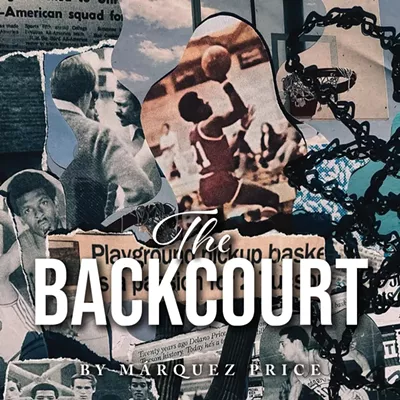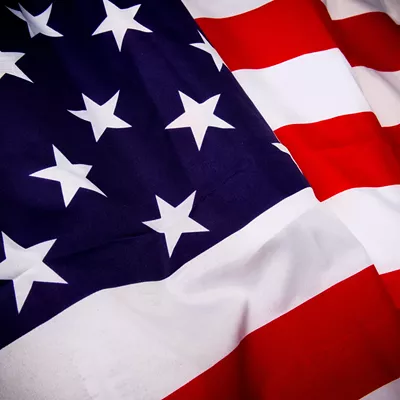Things are looking up. Of the 20 or so e-mails I got after last week's column in which I asked that the Confederacy not be glorified in this sesquicentennial anniversary of the start of the Civil War, only a couple tried to defend, in roundabout terms, the South's military defense of slavery. Predictably, there were also a couple of the inevitable "yobbit" responses that appear whenever there is a discussion of the Civil War, as in, "Yobbit ... what about Abraham Lincoln? He wasn't the saint that people make him out to be."
No, he wasn't a saint. He wasn't perfect, but he was the perfect person for the job at that critical time. I'm of the generation that used to celebrate Lincoln's Birthday, which is coming up in a couple of days. Instead, some government drone decided that since the birthdays of Lincoln and George Washington are only 10 days apart, we should lump them together as Presidents Day.
I don't want to honor all of the presidents. James Buchanan fiddled while the unholy stew of slavery reached a boiling-over point. Woodrow Wilson knew World War I was coming and failed to prepare our military to fight it. Ronald Reagan (and/or his subordinates) blithely ignored the United States Constitution just to help prop up the regime of a butcher in Nicaragua. And on and on ...
Abraham Lincoln wasn't a raging abolitionist; indeed, as a young man, he probably held many of the same racist views of blacks as many of his countrymen. In retrospect, he shrewdly insisted that the war was about preserving the Union when fighting broke out. He initially kept blacks from joining the Union army and, as many are quick to point out, the Emancipation Proclamation only served to (symbolically) free the slaves that were held in Confederate territory.
Frederick Douglass supported Lincoln and realized that the president was walking a tightrope. Douglass also realized that the Emancipation Proclamation, limited in scope though it was, represented the beginning of the end for slavery everywhere in America.
As Commander in Chief, Lincoln pretty much micromanaged the war. He would spend long hours at the telegraph office, waiting for any little bit of information from the battlefields. Then, when he got bored with that, he just might visit the battlefields themselves. He would put different people in command and then (quite correctly, in most cases) would tire of their timidity and replace them.
The dashing George McClellan trained his army to a razor-fine edge, but never could find the stomach (or parts lower) to actually go and fight anybody on a grand scale. Then there was Joseph Hooker, who somehow managed to squander a 5-1 numerical advantage over Robert E. Lee in losing the battle of Chancellorsville.
Lincoln replaced Hooker with George Meade, who won the Battle of Gettysburg on the Fourth of July weekend in 1863. After winning what would prove to be the decisive battle of the Civil War, Meade wasn't exactly fired by Lincoln for not pursuing the retreating army of General Lee, but he would have to spend the rest of the war as a subordinate to U.S. Grant.
The thing that impresses me most about Lincoln happened only a few days before his assassination. Richmond, Va. was the capital of the Confederacy. Despite being only 100 miles from Washington, D.C., both capital cities remained unscathed during the four-year war. If the South had tried to capture Washington (or the Union, Richmond), it would have left the other capital city unprotected and probably would have resulted in a trading-of-queens scenario.
But just days before the end of the war, there were no troops left to defend Richmond and Jefferson Davis' entire government fled the city in advance of onrushing Union troops. Lincoln, who was out in the field at the time, decided that he wanted to see Richmond for himself. Despite warnings from military leaders and other advisors, Lincoln got in a rowboat with a couple of men and headed across the river to Richmond. (The Secret Service existed at the time, but its job was fighting counterfeiting.)
Lincoln got out of the boat and walked onto the dock, becoming one of the first Northerners to set foot in Richmond since before the war began. A group of slaves were working nearby and immediately dropped to their knees as if in the presence of the messiah. They recognized him from pictures and now he, himself, had come to free them from their bondage.
Embarrassed, Lincoln said, "Don't kneel to me. That is not right. You must kneel to God only and thank him for the liberty you will hereafter enjoy. ..."
He was immediately surrounded by hundreds, and then thousands, of blacks. Afterward he walked the streets of Richmond alone and unprotected. Residents of Richmond who looked out their windows probably couldn't believe what they saw.
It wasn't until he returned home in Washington, D.C. that a cowardly Confederate sympathizer ended Lincoln's life, a life we should all celebrate on Saturday.








